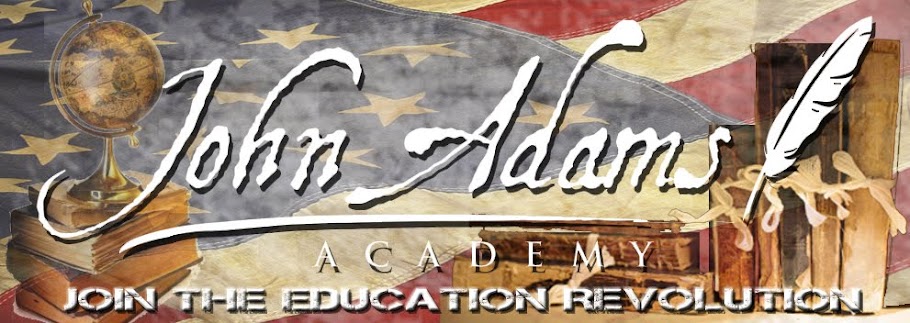Fostering Creativity and Entrepreneurial Spirit
By Nick, a 6th grade scholar
The 5th core value of John Adams Academy is Fostering Creativity and Entrepreneurial Spirit. Creativity is "the ability to use the imagination to develop new and original ideas or things", and entrepreneurial spirit is "the energy, drive and underlying motivation to get those things done". It usually involves 'thinking outside the box'. This means that John Adams Academy encourages their scholars to be creative in their lives and work, putting forth their best effort, and helping them have a trying spirit to achieve success and get the happiness that comes from work, effort, contribution and results.
There are many ways to be creative and have an entrepreneurial spirit. young people spend a lot of their time at school. Classes in school can provide the opportunity to develop ideas and try them out. Such as Art, where art pieces are made, and Science where experiments are designed and tested. And in Math, where creativity is needed to solve problems. JAA enhances this by having mentoring coursework, which helps us think of the future and prepare for it by inspiring us for particular jobs.
It is important to be creative and have and entrepreneurial spirit because this makes for personal and community progress and enjoyment in life. Jean Piaget said, "The principle goal of education is to create men who are capable of doing new things, not simply of repeating what other generations have done-men who are creative, inventive and discoverers." This quote means that the whole point of education is to learn to be creative, and to not be a follower but a leader, and to be successful in discovering new ideas. Walt Disney was a great example of this core value. He wanted to benefit the world and used his creativity and entrepreneurial spirit to start a company to bring joy to people all over the world. Walt Disney is my hero because he never gave up but kept on trying. Walt Disney said "We keep moving forward, opening new doors, and doing new things, because we're curious and curiosity keeps leading us down new paths." To me, this means being creative and curious leads to success.
I use this core value extensively. I have thought a lot about my future and decided the kinds of things I want to do. I have notebooks where I write my ideas down and keep drawings of my plans. My dream job is to be an architect with my own company and start a boarding school following the educational model of John Adams Academy. This is only one idea though. I am always thinking of new ideas and planning for my future. My personal motto is that anything is possible and it just starts with one little thought, which I can turn into a reality. I am so glad this is one of my school core values.
Nick won first place in our "JAA, the place to be" contest, with this written account of his favorite of the 9 Core Values. Nick is a 6th grade scholar at John Adams Academy.




